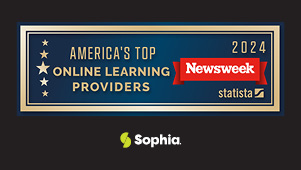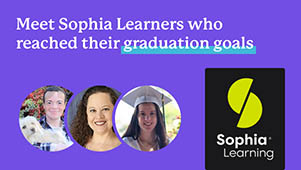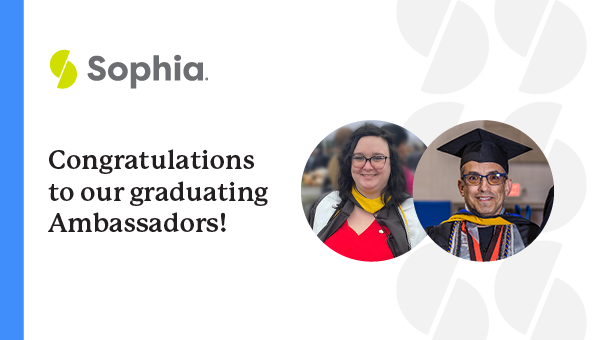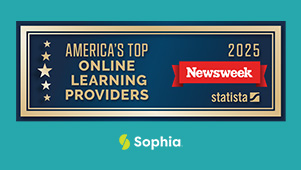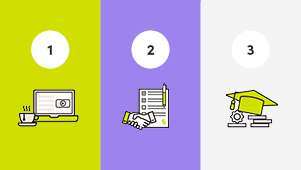One of the biggest misconceptions about scholarships is that they’re only for high school students applying to college. In fact, there are plenty of scholarship opportunities that current college students can apply for that may help to ease the financial burden of tuition, sharpen application skills, and gain some networking opportunities.
Find out more about scholarships for current college students, the types of scholarships available, where to find relevant scholarships, and the benefits of winning scholarship awards after your freshman year.
Can I Still Apply for Scholarships While in College?
Yes! Many students assume that scholarships are only for freshmen, but there are numerous scholarship opportunities if you’re already enrolled in college. You can find scholarships offered by organizations, universities, and private foundations that are intended for current undergraduate students who meet certain criteria, such as academic excellence, financial need, or extracurricular involvement.
Is It Too Late to Apply for Scholarships?
Absolutely not! There is no official deadline when it comes to seeking financial aid throughout your college career. In fact, many scholarships are available year-round with rolling deadlines or annual opportunities.
Whether you are a freshman, sophomore, junior, or senior, you should actively search for new scholarships to help fund your education. Even if you’re nearing graduation, getting additional funds can help ease your student loan debt or cover your remaining tuition costs.
Should You Do More Scholarships While in College?
Yes! Often, students forget about scholarships once they start college, but continuing to apply can help you minimize your out of pocket costs and future student loan debt.
Even if you don’t win every scholarship award, you’re gaining something from the application process itself. You’re honing your writing skills, improving your ability to market yourself, and connecting with organizations that support students in higher education. Plus, the more you apply, the better you’ll become at creating a winning application when it counts.
How to Find Scholarships to Apply for While in College
Finding scholarships requires persistence and strategy. Here are some effective ways to search for scholarships that are ideal for you:
Talk to your academic advisor: Many universities have institutional scholarships or know of external resources that are tailored to current students and degree programs.
Join clubs and organizations: Campus groups, professional organizations, and honor societies may offer exclusive scholarships to their members.
Search the US Department of Labor: The US Department of Labor has a free search tool for scholarships, fellowships, grants, and other financial award opportunities.
Check scholarship directories: Websites like Scholarships.com and Fastweb provide updated lists of available scholarships with helpful search tools to narrow your options.
Look for industry-specific scholarships: Some scholarships are designed for students in specific fields of study, such as business, STEM, healthcare, and the arts.
Types of Scholarships to Apply for While in College
There are several types of scholarships available to current college students, including:
Academic scholarships: Academic scholarships are awarded based on GPA, test scores, and overall academic performance. These scholarships may be offered by individual schools, nationally recognized organizations, or state, county, city, or local associations.
Service-based scholarships: These scholarships are granted to students involved in community service, volunteering, or leadership roles. For example, the Boy Scouts or Key Club may offer scholarships for students who participate in extracurricular activities.
Degree-specific scholarships: Many academic departments and professional associations offer scholarships to students pursuing degrees in related fields. STEM scholarships are a common example.
Military scholarships: Private and public entities sponsor military scholarships for students who have served or their family.
Need-based scholarships: These scholarships are accessible to students who demonstrate financial need and are usually offered through national organizations, as well as state or community organizations.
Employer scholarships: Some employers offer scholarships for employees or the college-bound students of the employees.
Benefits of Scholarships for Students Already in College
Applying for scholarships while you’re still in college has a range of benefits, including:
Reducing debt: Every dollar in scholarship funds can help to lower your student loan burden upon graduation.
Supporting academic success: Some scholarships include additional opportunities, such as academic resources or networking connections.
Building your resume: Scholarship applications demonstrate initiative, help you sell yourself as a candidate, and make you a more competitive job seeker when you start your job search.
Introducing Sophia’s Scholarships and Discounts Network
Looking for scholarship opportunities? Students who sign up for Sophia and complete at least one course will have access to the Scholarships and Discounts Network (SDN), a network of institutions offering tuition discounts and scholarships.
The SDN is available to any Sophia subscriber who has completed at least one Sophia course and is not yet enrolled in a university. If you’re eligible, you can opt in and express interest in any tuition discount or scholarship that you qualify for. Start your free trial at Sophia today!
